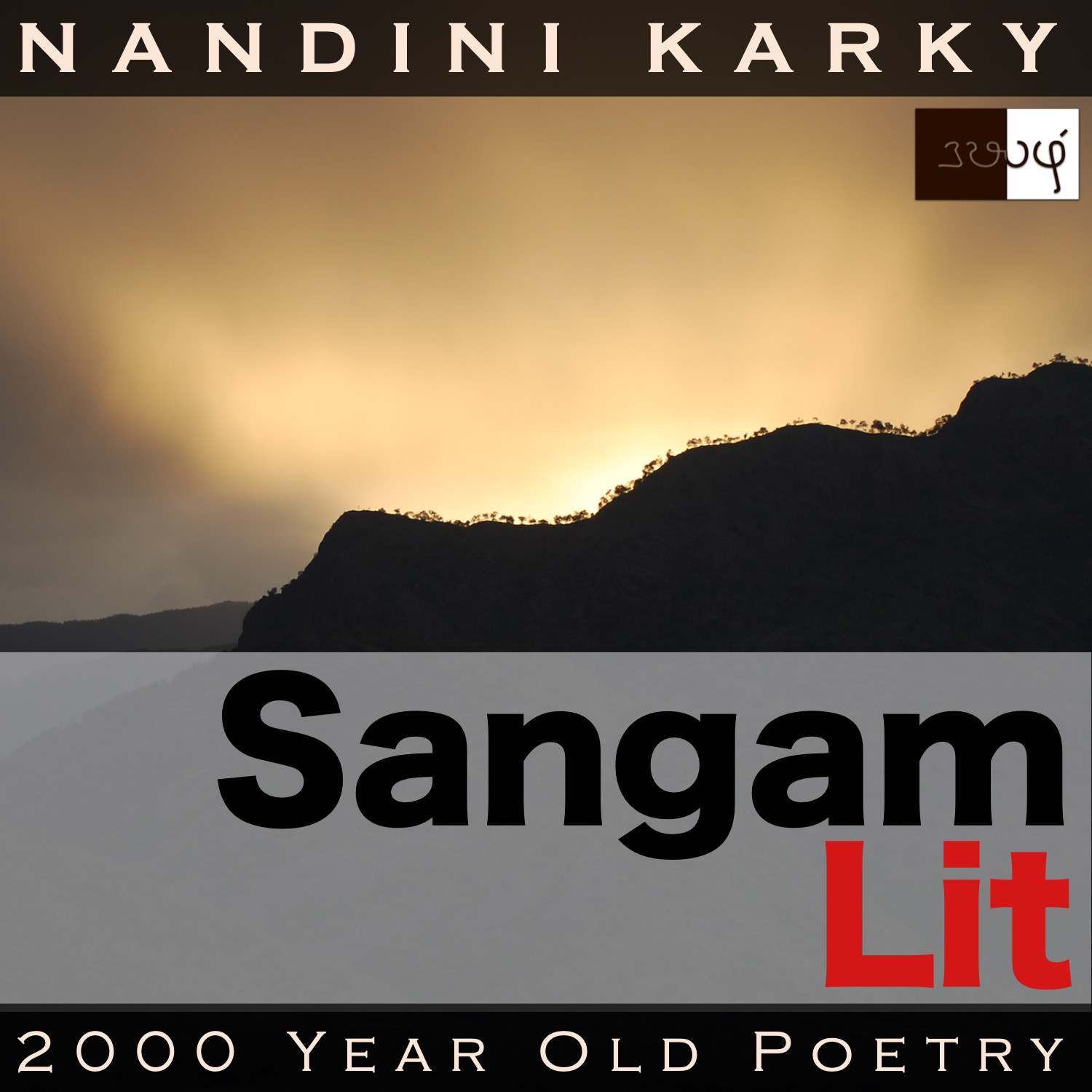Podcast: Play in new window | Download
Subscribe: Apple Podcasts | Spotify | Amazon Music | Android | iHeartRadio | Email | TuneIn | RSS | More

In this episode, we sense the fragrance and feeling in Sangam literary work Natrinai Poem 12. This poem has been written by Kayamanar, set in the ‘Paalai’ or the desert, dryland region of ancient Tamil land, in the words of the lady’s confidante to the lady’s man, painting a picture of the lady’s state of mind.
விளம்பழம் கமழும் கமஞ்சூற்குழிசிப்
பாசம் தின்ற தேய் கால் மத்தம்
நெய் தெரி இயக்கம் வெளில்முதல் முழங்கும்
வைகு புலர் விடியல் மெய் கரந்து, தன் கால்
அரி அமை சிலம்பு கழீஇ, பல் மாண்
வரி புனை பந்தொடு வைஇய செல்வோள்,
”இவை காண்தோறும் நோவர்மாதோ;
அளியரோ அளியர் என் ஆயத்தோர்!” என
நும்மொடு வரவு தான் அயரவும்,
தன் வரைத்து அன்றியும் கலுழ்ந்தன கண்ணே.
Like the scent of something delicious cooking on the stove from somewhere, the phrase
‘விளம்பழம் கமழும்’ meaning ‘exuding the fragrance of wood-apple’, called out to me. Then, there was ‘பாசம்’ which I knew to be ‘affection or attachment’, although later, I found the meaning in which it’s expressed here to be different and yet connected, which I will share in a little while. Then ‘விடியல்’ made me feel the warm rays of dawn on my skin. And the last word of the poem, ‘கண்ணே’ felt special, for it means both the ‘eye’ and ‘someone dear to you’. It reminded me of how elders in many Tamil families address a child as ‘Kannu’, literally meaning ‘my eye’ or presenting its idiomatic equivalent, ‘the apple of my eye’.
To really find what’s cooking, one has to follow the scent to its source and this led me to the exquisite meaning of this poem: The situation is such that a man is waiting outside a village, intending to elope with the lady. The lady’s confidante arrives there and explains why the lady has not come as he had hoped and says to him, ‘On that deep and rounded pot that exudes the fragrance of wood apple, moves the churning rod whose stem has been gnawed away by the churning rope. Sounds of this butter-making echo from the base of the rod to the street entire. It’s that time of the day when the rays of dawn are slowly spreading to dispel the darkness. At this hour, our lady covers her form fully, so as not to be recognised, and she removes the tinkling anklets, adorned with stones, from her feet and she takes it to place them, near that well-wound, neatly made ball. As she does so, she feels that when her dear friends see these anklets lying by the ball, they will know that she has left them and will feel immense pain. ‘Heartbroken, my friends will be’, she thinks. Although she desires to come with you, beyond her control, she stands there with tears rolling down from her eyes.’
The fulsome taste of the meal, I found at first in the reference to the scent of the wood apple. A web search on this fruit brought up many articles, where I found Indians talking with nostalgia about this fruit that they had savoured in their childhood, as well as recollections by travellers to India and Srilanka, describing the ‘funky’ smell of this fruit. What was curious in these references by travellers was that the ‘wood-apple’ smell was said to remind them of the pungent aroma of cheese. And here, in this poem from 2000 years ago, the same wood-apple has been used to describe the smell emanating from a pot used to make curd and butter. I find this similarity simply stunning. It echoes the connection in our human experience, binding us all as one, no matter where we come from. The other interesting detail was in how ‘பாசம்’ has been used to mean a churning rope and not in the other well-known meaning of ‘affection’ or ‘attachment’. And yet, from another perspective, isn’t attachment, a rope that gnaws away at our heart?
Finally, the holistic feeling I felt at the end of this sensory meal, can be captured by these mind montages that flashed before me: A child at the moment of leaving her neighbourhood and playmates for a bigger house in another neighbourhood; A man at the moment of leaving his job and his companions for a better job in another country; and most specially, a woman who has to leave her baby at the end of her maternity leave and return back to work. Affection is indeed the rope that makes us feel this pain and yet, the very thing, that keeps us human.




Share your thoughts...